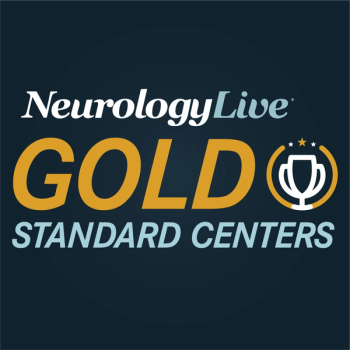
The director at the Foundation for the National Institutes of Health provided commentary on a recently launched partnership aimed at building a repository of ALS data to advance drug development for the disease.

The director at the Foundation for the National Institutes of Health provided commentary on a recently launched partnership aimed at building a repository of ALS data to advance drug development for the disease.

The head of the MS Center at Methodist Hospitals discussed the need for inclusive and affirming healthcare practices for patients with multiple sclerosis who identify as LGBTQ+.

The Minority Stroke Program, open since 2019, encompasses a group of highly trained stroke experts who provide high quality care and education for minority ethnic patients presenting with stroke.

The pulmonologist at Rush Health and immediate past president of the American Academy of Sleep Medicine provided perspective on some of the intriguing changes to sleep medicine and where the field is headed in the coming years.

The associate professor of neurology at Harvard Medical School talked about results from a recent study that evaluated the efficacy of inebilizumab versus rituximab in treating NMOSD.

The neurologist and neuro-oncologist at the Preston Robert Tisch Brain Tumor Center at Duke University provided clarity on a new analysis of the INDIGO study highlighting treatment benefits of vorasidenib in patients with IDH mutant grade 2 gliomas.

The director of the MedStar Georgetown Headache Center talked about results from an analysis on the DELIVER study assessing response rates of eptinezumab in patients with migraine over an 18-month period.

The associate director, Patient Reported Outcomes, Johnson & Johnson, provided clarity on a poster presentation from AAN 2024 examining the most critical aspects to CIDP disease severity.

The professor of neurology at Mayo Clinic talked about the need for comprehensive testing, careful consideration of criteria for diagnosis, and effective treatment in MOG antibody-associated disease.

The head of neurosciences at the Jane and John Justin Neurosciences Center of Cook Children’s Medical Center provided commentary on the need to properly diagnose Lennox-Gastaut syndrome and the negative downstream impacts of misdiagnosis or underdiagnosing patients.

The executive vice president and chief research officer of the Muscular Dystrophy Association shared her reaction to the recent FDA approval of givinostat for Duchenne muscular dystrophy.

The associate professor of neurology at the University of Naples discussed a recently enrolled study assessing the use of dimethyl fumarate, an approved therapy for relapsing MS and psoriasis, in patients with Friedreich ataxia.

The director of the Adult Genetic Epilepsy Program at the University of Toronto talked about the significant challenges posed by transitioning patients with epilepsy from pediatric to adult care settings.

The national medical advisor for the Parkinson's Foundation discussed the importance of continuous and ‘spaced’ physical therapy for Parkinson disease, highlighting the underutilization of this approach.

The director of Dysautonomia Clinic talked about the often overlooked triad of dysautonomia, hypermobility spectrum disorder, and mast cell activation syndrome in the field of headache medicine.

The director of neurocritical care and emergency neurology services at Westchester Medical Center Health System discussed the call for a paradigm shift in stroke care with a focus on intracerebral hemorrhage.

The chief executive officer of ClearPoint Neuro provided clarity on how the recently approved SmartFrame system can enhance the efficiency of operating room procedures, allowing for flexible workflows and image-based corrections.

The professor in the department of neurology with McGovern Medical School at UTHealth Houston discussed outcomes of a recent study exploring the specificity of T cells in the spinal fluid of patients diagnosed with multiple sclerosis.

The chief executive officer of Aruna Bio provided context on a newly accepted phase 1/2 trial assessing the company’s neural-derived exosome agent AB126 in patients with acute ischemic stroke.

The director of NYU Langone’s Comprehensive Epilepsy Center provided perspective on recently published data evaluating the potential mechanisms of sudden deaths in toddlers.

The associate director of the Alzheimer’s Disease Research Unit at the Yale School of Medicine provided commentary on positive phase 1 findings assessing ALX-001, a highly selective agent in development for neurodegenerative diseases.

The senior vice president of medical and clinical affairs for Avadel Pharmaceuticals provided perspective on a recently published analysis demonstrating the benefits of once-nightly sodium oxybate in narcolepsy type 1 and type 2.

The neurologist at Cleveland Clinic shared thoughts on a recently published study assessing the relationship between blood biomarkers and change in cognitive function and brain volumes in a cohort of professional fighters.

The chief medical officer of Biohaven discussed early-stage data supporting the efficacy and safety of BHV-7000, a selective Kv7.2/7.3 potassium channel activator in development for patients with epilepsy.

The vice president of the Rare Disease Translational Center at the Jackson Laboratory provided context on a recently published study suggesting restoration of stathmin-2 as a therapeutic approach for ALS.

The director of the headache section at Cleveland Clinic’s Neurological Institute provided thoughts on how recent advances have propelled migraine care, treatment possibilities behind prevention, and emerging research targets.

The physician neurologist and neuroimmunologist at Cedars Sinai Medical Center discussed RNDS 2023, an educational event for Spanish-speaking patients with rare neuroimmune disorders.

The research neuroscientist at the University of California Berkeley provided insight on findings from the US POINTER study and why previous thoughts on the link between relevant biomarkers and cognition may be slightly incorrect.

The chief medical officer of NeuroTherapia provided insight on promising phase 1b data assessing NTRX-07, a CBR2-targeting agent in development for patients with early-stage Alzheimer disease.

The director and founder of The MS Center for Innovations in Care provided perspective on some of the significant strides made in recent years to improve the care and access to affordable treatments for patients with multiple sclerosis.